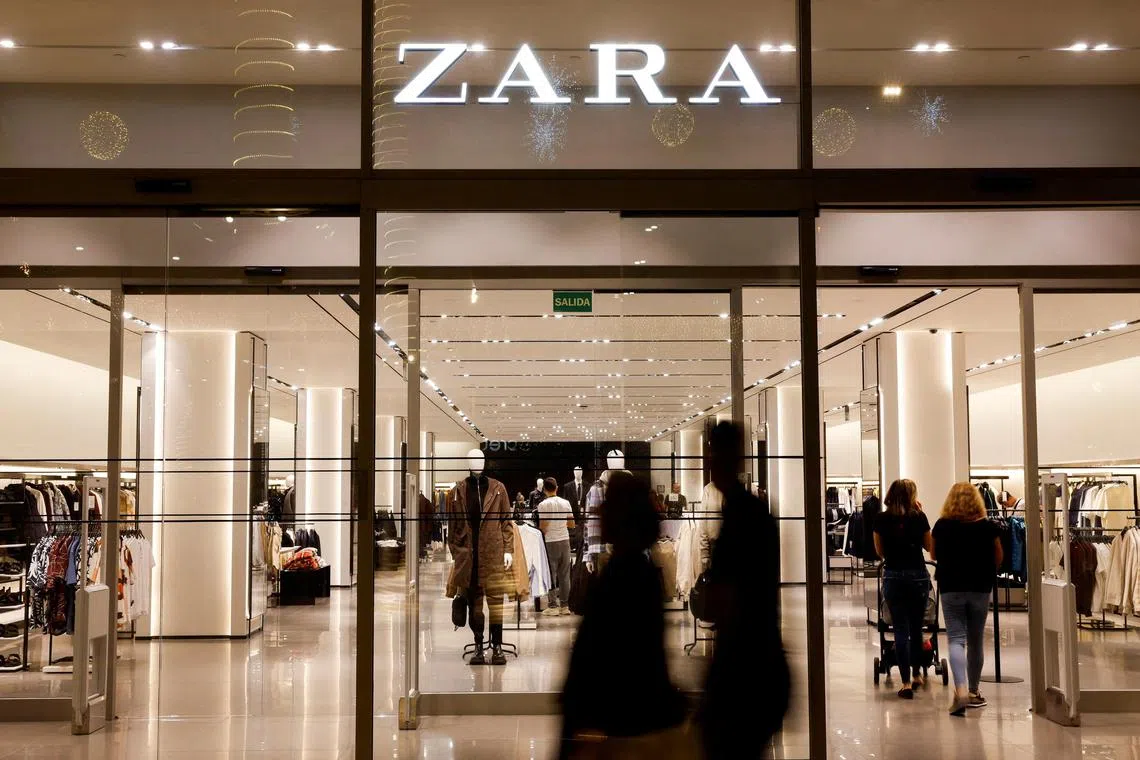UK second-hand shopping to hit $8.3 billion in 2025 amid cost-of-living crisis
Sign up now: Get ST's newsletters delivered to your inbox

Established retailers are trying not to miss out with Zara owner Inditex expanding its platform to sell second-hand clothes.
PHOTO: REUTERS
Follow topic:
LONDON – Two-thirds of British consumers bought second-hand goods online in 2024, research shows, a figure expected to grow as shoppers rein in spending and as so-called “pre-loved” items become more available.
Purchases of used goods on the internet will reach £4.8 billion (S$8.3 billion) in Britain in 2025, up from £4.3 billion in 2024, according to a report from the Centre for Economics and Business Research (CEBR) commissioned by Amazon.com.
The market is growing rapidly, with some shoppers driven by environmental concerns and others taking the opportunity to monetise their wardrobes as sellers. Households have also grown thriftier amid cost-of-living pressure.
Vinted, Europe’s largest online marketplace for second-hand clothes, is valued at around €5 billion (S$7.5 billion) and is expanding into other segments including phones, toys, gaming consoles and, potentially, luxury watches, its chief executive Thomas Plantenga told Bloomberg late in 2024.
The trend has implications for established retailers, which are trying not to miss out. Zara owner Inditex has expanded its platform to sell second-hand clothes in the US, France and Germany. Amazon has grown its selection under the banner Amazon Second Chance, selling returned items at discounts and offering “pre-loved” fashion including Dior dresses and Gucci joggers.
“Brands that don’t evolve risk leaking relevance – and revenue – to platforms that feel more aligned with where the world is heading,” retail consultant and broadcaster Mary Portas told Bloomberg.
Second-hand products now account for 34 per cent to 45 per cent of British consumer spending in some of the most popular categories including technology, fashion and home appliances, according to the CEBR, which surveyed 10,000 adults across Europe.
The market includes used and “open-box” items – where a product is returned unused – as well as refurbished goods, it said.
Average monthly spending on pre-loved goods has more than doubled over five years in Britain, rising to £124.80 a month from £58.40, the CEBR said. BLOOMBERG

